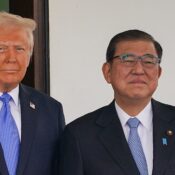
Ecuador has reopened its mining concession registry after a seven-year hiatus
For the first time in seven years, Ecuador’s mining ministry announced on Monday the start of a new record of concessions. The goal is to promote more mining projects to the South American country and stop illegal activities.
Concerns about problems in the concession system led to the closure of the old registry in 2018. Since then, no new concessions have been negotiated.
At a press conference, Mining Minister Ines Manzano said, “Mining needs regulation to secure investments and promote development that is responsible with the environment and with communities.”
Starting with small-scale non-metallic mining, like getting limestone and clay for cement and ceramics, the ministry will open the record in stages. Within the next step, small-scale metal mining will begin in September. Starting in 2026, other kinds of mining will be able to use the register.
The National Mining Cadastre, as Manzano called it, will create a clear and efficient database of information about mining licenses. This restart happens at the same time as new rules about how to get permits for small-scale mining of non-metallic materials.
“We have improved the regulations and will issue guidelines that enable the proper development of the mining value chain,” said Manzano.
Along with his promise to fight drug gangs and grow the economy, President Daniel Noboa ordered the registry to be reopened in October as part of a mining law that includes steps to stop the spread of illegal gold mining.
Its major exports are copper, gold, and silver, worth more than $3 billion last year. As a result of resistance from native communities and bad court decisions, the country has not developed large-scale mining as quickly as other Andean countries like Peru and Chile, even though it has a lot of resources.
The country’s mining chamber expressed opposition to Noboa’s administration’s plans for new mining fees.
Monday, Carolina Jaramillo, a spokeswoman for the government, told reporters that the fees would depend on the size and type of the mining project and that there was a “open dialogue” going on with representatives from the sector.
All Categories
Recent Posts
Tags
+13162306000
zoneyetu@yahoo.com



